Reflections and Insights from Mavis Lam, Participant of the 40th Advanced Studies Program
Last Updated (Monday, 30 June 2025 13:09)
The Power of Yes: A Journey of Faith and Reflection
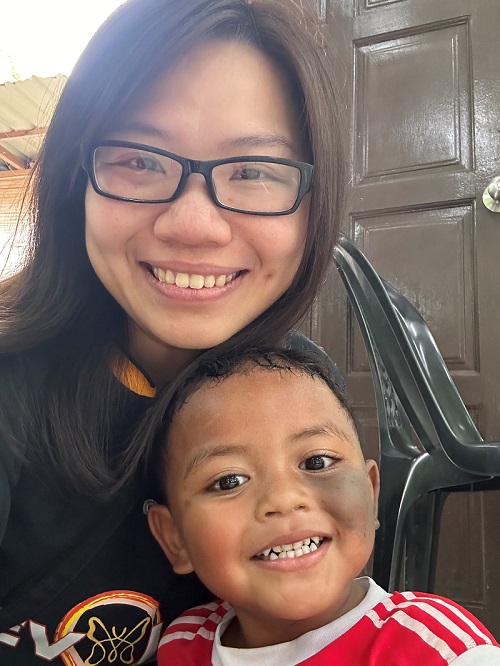 Embarking on new experiences often requires a leap of faith, and for me, this was no exception. My biggest challenge was saying 'yes' to the Advanced Studies Program (ASP) leadership training because I had to be away from my children for three weeks. However, it was also the quickest 'yes' I have ever given, as I knew that ASP is a very meaningful training programme as part of the YMCA Movement. I am very grateful that my YMCA nominated me as one of the participants; it is a great honour. I am also thankful that my YMCA has prepared me to attend the ASP over the past 17 years.
Embarking on new experiences often requires a leap of faith, and for me, this was no exception. My biggest challenge was saying 'yes' to the Advanced Studies Program (ASP) leadership training because I had to be away from my children for three weeks. However, it was also the quickest 'yes' I have ever given, as I knew that ASP is a very meaningful training programme as part of the YMCA Movement. I am very grateful that my YMCA nominated me as one of the participants; it is a great honour. I am also thankful that my YMCA has prepared me to attend the ASP over the past 17 years.
This is the first time I have travelled alone overseas, but on my way here, I recalled a phrase that my supervisor sent me 8 years ago: "Your difficult situation is not too difficult for God." My connection to the YMCA made me feel at ease upon arriving at the Penang YMCA, providing the same sense of comfort as the YMCA of Hong Kong!
It has been a long time since I have had such a busy schedule, balancing both work and family commitments. During my stay in Penang, although I struggled with being away from Hong Kong, it provided me with the perfect opportunity to have quiet time and reflect on myself, both personally and professionally. Additionally, the daily training sessions refreshed my mind and allowed me to revisit my YMCA journey. We exchanged ideas, interacted with different YMCAs, and gained valuable insights from resource persons and discussions.
During the training, understanding contextual Bible study was crucial for us to grasp the teachings of God. I believe it is not easy to comprehend the deeper meanings if one is not a Christian. Although I am not yet a Christian, I have had various opportunities to explore my journey with God during my time working at the YMCA of Hong Kong, including monthly staff devotions, the World Week of Prayer, different Christian events, and the Bible Fellowship starting in September 2023. These experiences have made it easier for me to engage with the training content. While I still have much to learn, I am no longer worried of the topic and feel more familiar with the content, especially the sessions on Bible study, which relate the Bible to our daily work and lives.
A particularly significant story was shared by one of the resource persons about a son who sent his mother a microwave as a gift. However, the mother didn’t know how to use it. The son called his mother every day to teach her how to read the manual. He went through the same process for a week, but the mother still didn’t understand and couldn’t use the microwave. After a week, the son asked, "How can I help to make it work?" The mother replied, "You just need to take a train and come to my house to show me how to use it." This story illustrates the importance of putting our mission into action. The resource person likened the manual to the Bible, emphasising that God’s word is not just a manual; no text becomes meaningful without context.
I believe this is a true example of interpretation. A Bible verse is not merely a slogan; it should relate to the interpreter’s life. After hearing this story, I reflected on and gained a new understanding of Matthew 7:24—"Therefore everyone who hears these words of mine and puts them into practice is like a wise man who built his house on the rock." This was not the first time I had read this Bible verse, but the story provided me with a deeper insight into its meaning. Just as the story highlights, God's word guides us practically in our daily lives, helping us apply God’s teachings in meaningful ways. This realisation has given me a deeper understanding of the significance of Bible study.
Expanding Horizons: The Importance of Interfaith Dialogue
The training sessions also introduced us to an interfaith approach that broadened my understanding of how to cooperate for justice and peace in a multi-religious context. Traditionally, discussions around interfaith dialogue often focus on respecting each other's religious beliefs, cultures, and customs. However, the resource person emphasised that true interfaith cooperation goes beyond mere respect and involves active collaboration towards common goals.
One of the key takeaways for me was the importance of understanding the dialogue of people, not just of religions. It’s about engaging in conversations that relate to everyday life and the challenges we face. We must ask ourselves: What does our faith prompt us to do in response to the events occurring around us and globally? This contextual dialogue on social issues is crucial, as it transcends traditional boundaries and encourages collective action.
Moreover, interreligious conversations should not be limited to discussing traditions alone. They should foster mutual understanding and collaboration to address pressing social issues. By focusing on what unites us and working together, we can create a better world.
Reflecting on these insights, I realise that interfaith cooperation is a powerful tool for promoting justice and peace. It requires an open mind, a willingness to listen, and a commitment to taking action based on our shared values. As we continue these dialogues, we should strive to understand and support one another, leveraging our diverse perspectives to make a positive impact.
The Boomerang Effect: Harm and Hope
Another moment that left a lasting impression on me was when Mr. Chan Beng Sen shared his thoughts on climate justice for a sustainable planet, using the metaphor of a "Boomerang" to describe the consequences of our actions. He explained that whatever harm we inflict on the Earth will inevitably return to affect us. I found this description powerful, as it captures the reciprocal nature of our relationship with the planet.
As I reflected further on this metaphor, I realised that it doesn't solely apply to negative actions. The concept of a Boomerang also encompasses the positive steps we take. Just as harmful actions return to us with adverse effects, our positive efforts can yield beneficial outcomes. This dual perspective offers hope and underscores the importance of reflecting on our actions and their long-term impact.
We must be mindful of our behaviours, not only to avoid negative repercussions but also to actively contribute to positive change. By embracing this mindset, we can foster a more sustainable future and inspire others to do the same. This realisation has deepened my understanding of the interconnectedness of our actions and the environment, reinforcing the need for both individual and collective responsibility.
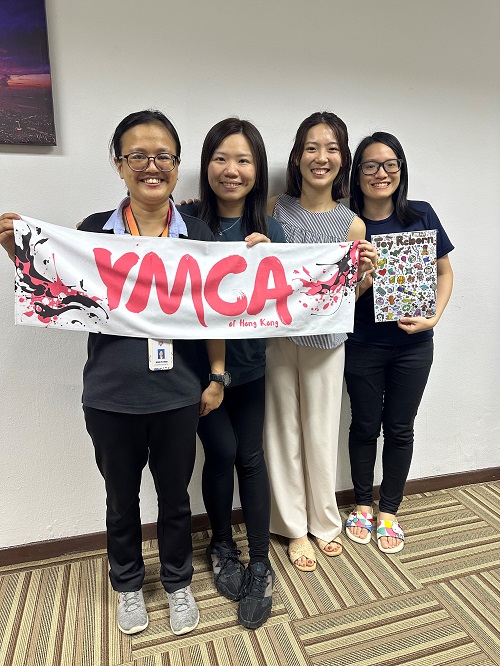 | 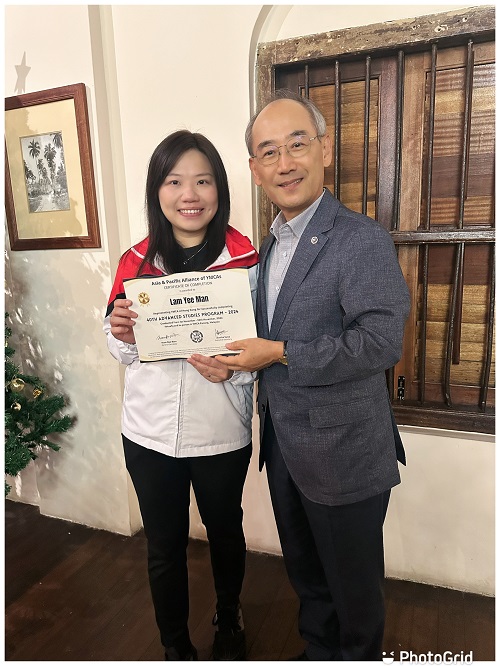 | 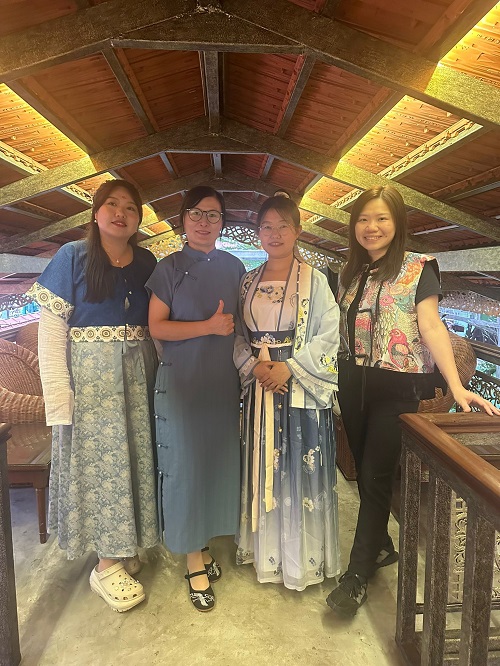 |
Connecting Through Experience: Engaging with Village Life
In addition to our lectures, we had the unique opportunity to immerse ourselves in a village in Penang, where we experienced an overnight stay in the countryside. This stay allowed us to appreciate the beauty of nature, providing a refreshing change from our usual urban environment.
We engaged deeply with the local children, participating in various activities and games. I was profoundly moved by their pure and simple joy, which reminded me that, regardless of their surroundings, children are inherently innocent and find happiness in the smallest interactions. This experience reinforced my passion for education, highlighting its crucial role in nurturing and sustaining this joy.
Alongside our time with the children, we also had meaningful conversations with the adults in the village. One memorable moment occurred when I asked a woman, "If you could change one thing here, what would it be?" Her response was "Education", which surprised me, as I had expected her to mention immediate needs like resources or economic conditions. Instead, she recognised the transformative power of education and its long-term impact on their lives, underscoring its far-reaching potential.
Through these dialogues, I also gained insights into the complex religious dynamics in Penang, which are mirrored in the countryside. We learned that the village community used to receive subsidies, which ceased when more residents converted to Christianity, as subsidies are provided to communities where the majority are Muslim. I was deeply impressed by the villagers' commitment to their beliefs, even while facing challenges and living in less-than-ideal conditions. Their steadfastness in faith, despite adversity, was truly inspiring.
After our overnight experience, we had a group discussion among the ASP participants to share insights and challenges from the trip. We noted that the village we visited is relatively advanced, with a proper water system built by a corporate entity from Korea. The community went out of their way to provide us with excellent hospitality, preparing dinner and allowing us to sleep in their church. One of my groupmates from Sri Lanka remarked that some of the equipment in the church was even better than what they have at his YMCA. This made me reflect on the resourcefulness of my own YMCA compared to many others, motivating me to strive for more support for communities in need.
This experience also deepened my understanding of the importance of respecting the culture and lifestyle of the community. It reminded me that true support involves understanding and valuing the perspectives and traditions of those we aim to help. By respecting their way of life, we can build more meaningful connections and create solutions that are both relevant and sustainable.
Fostering Understanding: A Path to Justice and Peace
Throughout our sessions, we had the opportunity to learn from various resource persons who shared valuable insights on justice and peace, covering topics such as war, global superpowers, and gender equity. Additionally, we heard heartfelt stories from ASP participants about their countries. These discussions were eye-opening and reminded me once again of how blessed I am.
Reflecting on this, I feel incredibly fortunate to have a loving family and to work in a mission-driven organisation. I am grateful for everything I have, recognising that God's grace is sufficient for me. This training also made me realise how small I am in the grand scheme of things, but that does not diminish my capacity to make a difference.
I understand the importance of staying informed about current issues, both locally and globally. As a leader, I have a responsibility to be aware of the challenges faced by others and to take action to address them. I am committed to planting seeds of hope and making a positive impact, even if only one plant flourishes. It is essential to remember those who are suffering and to work together to create a better world.
Leading with Purpose: The Heart of Transformative Leadership
The core focus of the programme was on developing transformative leadership. This concept emphasises the profound impact a leader can have by inspiring and fostering growth in others. The essence of transformative leadership lies in the ability to create positive change, not just within an organisation, but also in the broader community.
A transformative leader goes beyond simply managing tasks and directing people. They embody qualities such as vision, empathy, and integrity, inspiring others to reach their full potential by creating an environment that encourages growth, innovation, and collaboration. This type of leadership is rooted in servant leadership, where humility and service are at the core of the leader’s actions.
One of the key insights shared by a resource person was that “A good leader produces leaders.” This statement resonated deeply with me. Reflecting on this, I realised that my role as a leader extends beyond merely being a model of excellence and humility; it involves actively and intentionally inspiring others to step into leadership roles, thus ensuring the sustainability of our mission.
Being a transformative leader requires a commitment to leadership development. I need to create opportunities for others to grow, provide mentorship, and encourage them to take on responsibilities that challenge and empower them. By nurturing potential leaders, I can help cultivate a strong team that will drive our organisation forward. This journey is undoubtedly challenging, but it is essential for the continuity and success of our mission.
This realisation has inspired me to reassess my approach to leadership and focus on creating an environment where emerging leaders can thrive. I am grateful that the training I received from the YMCA of Hong Kong over the past years has equipped me with valuable skills and insights, reinforcing the importance of this approach. I am committed to giving back what I have gained from the YMCA Movement.
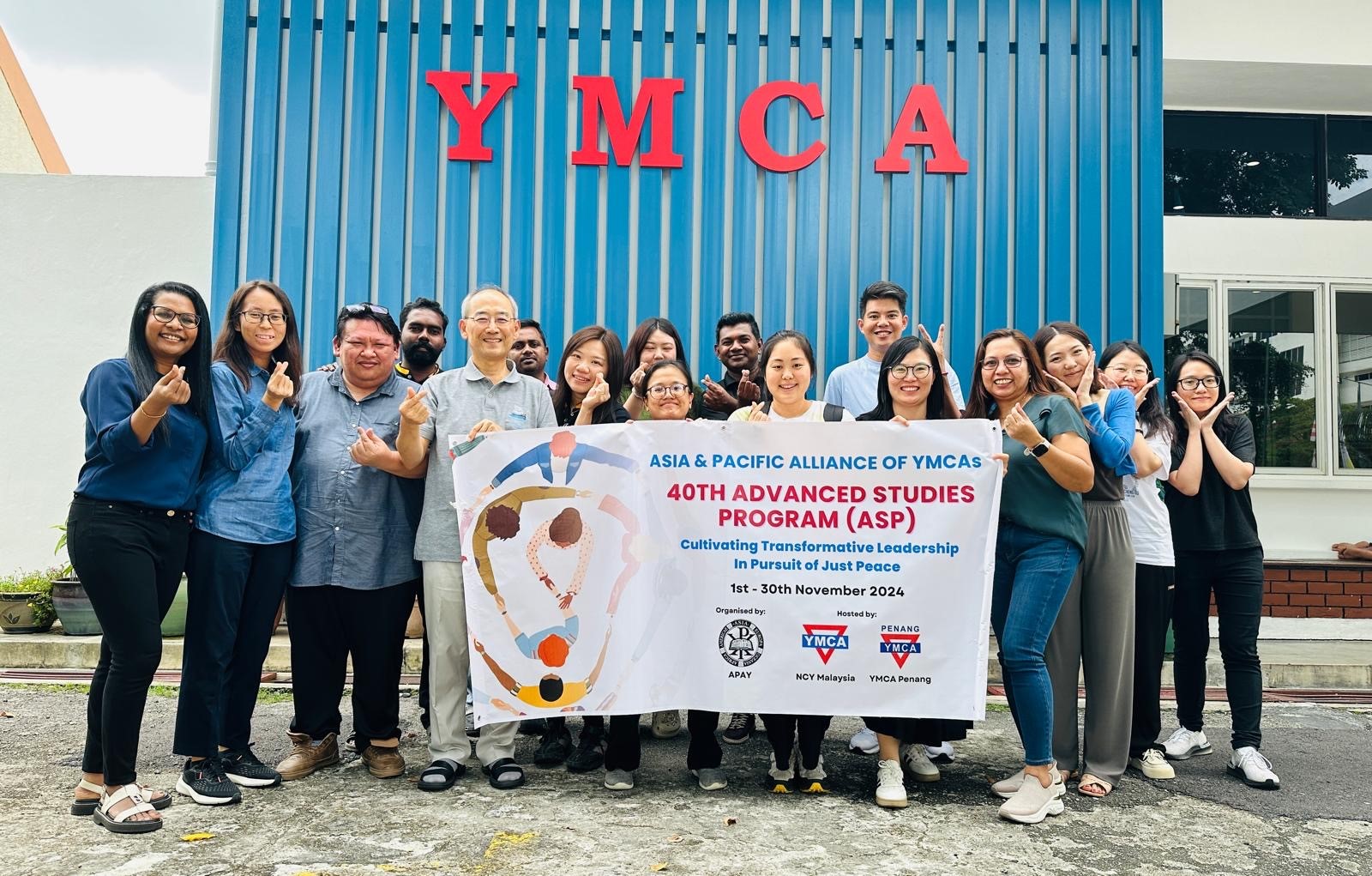
One Mission, One Movement: Leading with Grace
In reflecting on my journey through the ASP training, I am reminded of the words from 2 Corinthians 12:9: "My grace is sufficient for you, for my power is made perfect in weakness." This theme resonates deeply as I recognise how the training has equipped me with valuable knowledge, skills, and inspiration to embrace transformative leadership in the pursuit of justice and peace. The diverse insights gained, coupled with engaged learning experiences, have reinforced the importance of nurturing growth in others.
I am deeply grateful for the opportunity to engage with varied perspectives, which has enriched my understanding of the complexities we face as leaders. Each session highlighted that true leadership is rooted in humility and service, empowering others to step into their potential. By nurturing this potential, we create an environment where everyone can thrive. YMCAs serve as a lighthouse, providing a flash of hope, offering clear direction, and shining brightly in times of darkness. As we carry on the YMCA legacy, let us remember that together, as one movement with one mission, we can transform challenges into opportunities for growth and create a meaningful impact in our communities. In this way, the grace we receive empowers us to lead with integrity and compassion, fostering a brighter future for all.
By Mavis Lam
Senior Manager – Education, Service & Leisure Program
YMCA of Hong Kong
Participant of the 40th Advanced Studies Program





